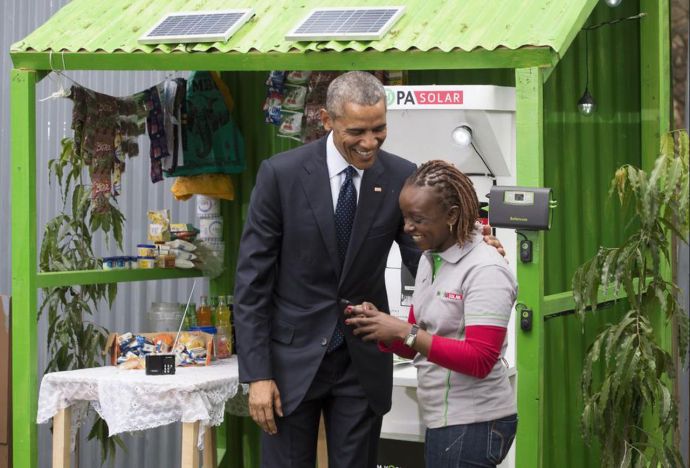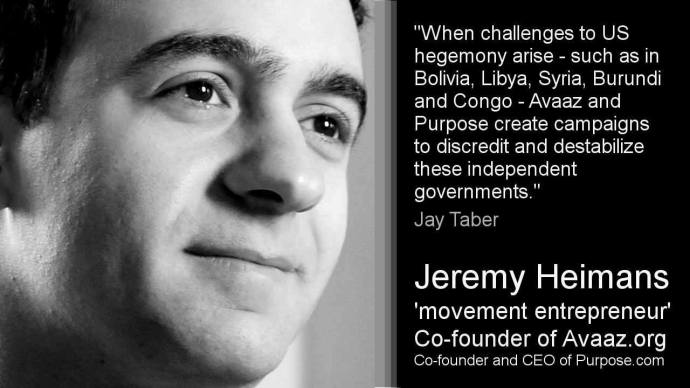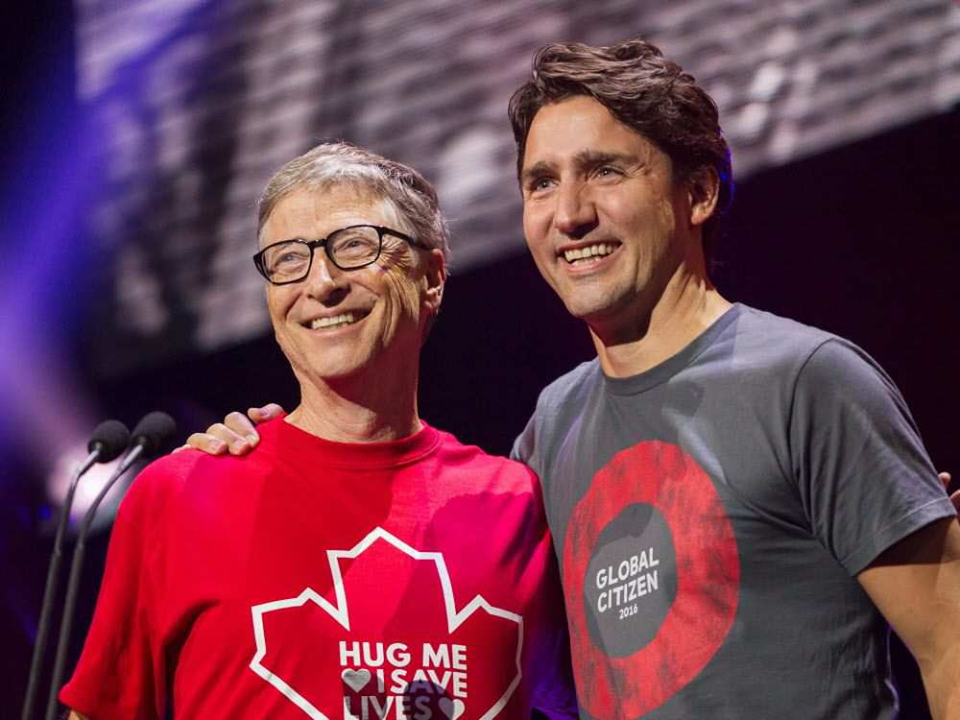Dec 25
20200
Ford Foundation, Social Engineering, Whiteness & Aversive Racism
Action Canada B Team Africa CARE Canada FinDev Fintech Gates Foundation Generation Investment Great Reset Internet of Things M-Kopa MasterCard Nairobi Pay-As-You-Go Predatory Finance The B Team WE Charity We Mean Business
Did Wrongdoings in Africa Force M-Kopa Solar to Rebrand? [B Team Africa, Gates, Generation Investment]
Cyprian Nyakundi
December 24, 2020
“The financial industry is undergoing rapid technological change… The increase in demand for digital services triggered by COVID-19 is turbo-charging this transformation.”
“Fintech’s potential to reach out to over a billion unbanked people around the world, and the changes in the financial system structure that this can induce, can be revolutionary.”
December 17, 2020, What is Really New in Fintech, IMF Blog
“Upon first glance, a person would assume this business is the selling of solar. Yet this assumption would be a mistake. The product is finance: “About a quarter of those who pay off their first purchase move on to others, the company says.” This is colonization in a 21st century new form. Colonization via debt made possible by the selling of Western values. Other vultures exploiting the impoverished and vulnerable under the guise of green and “clean energy for all” include iniquitous organizations, such as the Gates Foundation and Mastercard.”
January 28, 2019: An Inconvenient Case Study: M-Kopa Solar, Africa, [The Manufacturing of Greta Thunberg – for Consent: The Most Inconvenient Truth: “Capitalism is in Danger of Falling Apart”, ACT III]
“The B Team continues to grow and expand its coalition of corporate executives. In 2018, Indra Nooyi, chairman and former CEO of PepsiCo, joined the coalition. More recently, The B Team welcomed Ajay Banga, president and CEO of MasterCard. Another B Team leader is Andrew Liveris, chairman and CEO of Dow Chemical Company. Liveris also serves as a member of The Nature Conservancy’s Latin America Conservation Council, and the Concordia Leadership Council. ”
September 17, 2019, We Mean Business Co-founder – The B Team [The Manufacturing of Greta Thunberg – for Consent: They Mean Business, Volume II, Act IV]
Blacklock’s Reporter is a subscription service that monitors corruption in Canada and in the light of the WE Charity scandals, it has been one of the sites that has continued to give timely briefs.
The site has made a link between Jesse Moore, CEO of M-Kopa and Craig Kielburger, CEO of We Charity, another organization accused of siphoning off Canada taxpayer money in Kenya.
M-Kopa is described as a ‘money-losing door-to-door sales company in Nairobi that received millions in federal funding’ (funded by Canadian taxpayers).
Jesse Moore, a former Toronto child activist, earlier served in a youth leaders’ group with WE Charity co-founder Craig Kielburger.
WE Charity Scandal in Kenya
- We Charity forces whistle-blower to recant evidence of mistreatment
- WE Charity suspicious activities that should get the attention of Kenyan authorities
- We Charity shuts down Canadian operations after scandal
The link between We Charity’s Craig Kielburger and M-Kopa’s Jesse Moore
The issue was picked up by a Canadian MP in an interview with a Toronto radio station last Thursday (Last week) and it’s becoming an emerging scandal in Canada.
Kampala, Uganda – October 25, 2018 – “Mastercard in partnership with M-KOPA Solar and Centenary Bank, celebrated the first ‘pay-as-you-go’ QR transaction this week, officially launching the initiative, which provides a simple and inexpensive way to power the homes and businesses of Ugandans.”

“Pay-As-You-Go and the Internet of Things: Driving a New Wave of Financial Inclusion in the Developing World”

January 22, 2020, World Economic Forum, Davos: “How are the pioneers of the Fourth Industrial Revolution shaping the future of society?”
Jesse Moore, CEO of M-Kopa. Moore is a shareholder and chief executive of M-Kopa Holdings Ltd., a Kenyan firm that sells home appliances, cellphones and household loans on the installment plan. M-Kopa was the first recipient of FinDev funding on a promise of “creating good quality jobs in East Africa.” M-Kopa laid off 150 employees two days after FinDev announced its initial share purchase in 2018. The company lost $51 million (Sh5.5 billion) over two years as taxpayer funds were spent on the company, according to financial records.
Also FinDev admitted giving another US$ 2 million (Sh218 million) in 2019, after the firing of the 150 software developers became public news.
In the past, FinDev, a federal agency bought $15.4 million (Sh1.7 billion) in shares in M-Kopa Holdings Limited.
FinDev has confirmed it was aware Moore held shares in the company. The agency has an observer on the M-Kopa board, but would not comment on salary and benefits approved for the chief executive.
“FinDev has an observer status that allows us to be informed about M-Kopa’s business developments,” said Shelley Maclean, a spokesperson for the agency. “Following its investment in M-Kopa, in January FinDev was made aware of certain employee share purchases that took place.”
Moore is a former director with CARE Canada and a 2006 Fellow at Action Canada, a federally-subsidized “leadership development” program for students. Kielburger was also a 2006 Fellow in the program.
In the article, the predatory M-Kopa is refusing to cooperate.
On other note, M-Kopa has told staff it is exiting the solar business in Uganda and will focus on its 26,899/- A11 phones (https://m-kopa.com/kenya/products/) on an extreme high-interest payment plan ( you can get same phone on Jumia for 13,500 ).
At the same time it has taken the word “Solar” out of all of its brand identity- https://m-kopa.com/ does not have the old M-Kopa Solar logo anymore. In Kenya they are telling staff that solar will reduce as they become a pure predatory phone finance company. https://androidkenya.com/2020/01/samsung-m-kopa-phone/ And they are only selling phones, not solar, in Nigeria and Ghana.






















!["The share of ICT of global electricity usage: 2015 to 2025 with and without high global energy efficiency gains" [p. 18, Andrae, Anders, 2017/10/05, Total Consumer Power Consumption Forecast]](https://i0.wp.com/www.wrongkindofgreen.org/wp-content/uploads/2020/11/2017-Andrae-CT-of-Global-Share.png?resize=690%2C617&ssl=1)
![Figure 8. "Share of communication technology of global electricity usage 2010–2030 As shown in Figure 8 [], the share of CT Sectors, depending on scenario, in 2010 is 8%–14%, in 2020 6%–21% and in 2030 8%–51%, respectively.' [p. 22, Andrae, A.S.G.; Edler, T. On Global Electricity Usage of Communication Technology: Trends to 2030. Challenges 2015, 6, 117-157.]](https://i0.wp.com/www.wrongkindofgreen.org/wp-content/uploads/2020/11/Andrae-Global-Share-51-Percent.png?resize=690%2C604&ssl=1)
![[p. 21, The share of different sections of ICT of global electricity use in 2015 and 2025, Andrae, Anders, 2017/10/05, Total Consumer Power Consumption Forecast]](https://i0.wp.com/www.wrongkindofgreen.org/wp-content/uploads/2020/11/Andrae-ICT-Global-Electricity-Best-Case-2025.png?resize=690%2C445&ssl=1)




















































![Above: Sarkozy awards Ellen MacArthur the Légion d’Honneur, 2008 [Yachting World]](https://i0.wp.com/www.wrongkindofgreen.org/wp-content/uploads/2019/09/Sarkozy-awards-Ellen-the-L%C3%A9gion-d%E2%80%99Honneur-2.jpg?resize=489%2C612&ssl=1)

































































































































































